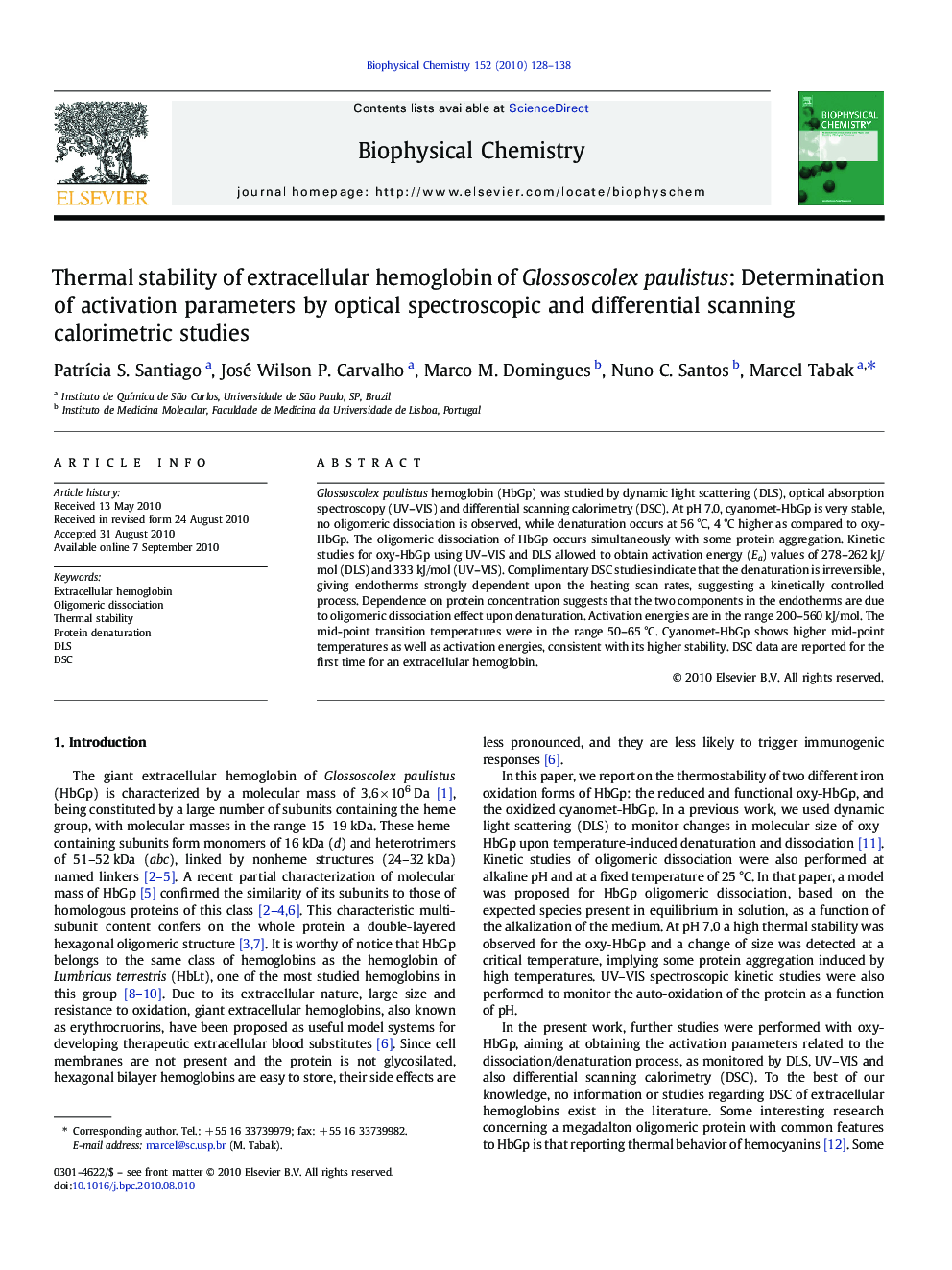| Article ID | Journal | Published Year | Pages | File Type |
|---|---|---|---|---|
| 5371483 | Biophysical Chemistry | 2010 | 11 Pages |
Glossoscolex paulistus hemoglobin (HbGp) was studied by dynamic light scattering (DLS), optical absorption spectroscopy (UV-VIS) and differential scanning calorimetry (DSC). At pH 7.0, cyanomet-HbGp is very stable, no oligomeric dissociation is observed, while denaturation occurs at 56 °C, 4 °C higher as compared to oxy-HbGp. The oligomeric dissociation of HbGp occurs simultaneously with some protein aggregation. Kinetic studies for oxy-HbGp using UV-VIS and DLS allowed to obtain activation energy (Ea) values of 278-262 kJ/mol (DLS) and 333 kJ/mol (UV-VIS). Complimentary DSC studies indicate that the denaturation is irreversible, giving endotherms strongly dependent upon the heating scan rates, suggesting a kinetically controlled process. Dependence on protein concentration suggests that the two components in the endotherms are due to oligomeric dissociation effect upon denaturation. Activation energies are in the range 200-560 kJ/mol. The mid-point transition temperatures were in the range 50-65 °C. Cyanomet-HbGp shows higher mid-point temperatures as well as activation energies, consistent with its higher stability. DSC data are reported for the first time for an extracellular hemoglobin.
Graphical AbstractDownload full-size imageResearch Highlights⺠Extracellular hemoglobin of Glossoscolex paulistus (HbGp), in the cyanomet-form, is very stable in the pH range 7.0-9.0, at 25 °C. ⺠Increase of temperature above 25 °C promotes oligomeric dissociation (DLS, optical absorption) and protein denaturation (DLS, DSC) at alkaline pH values. ⺠Protein concentration dependence for both oligomeric dissociation (DLS) and denaturation (DSC) of HbGp suggests that the oligomeric dissociation is part of the rate-determining step for irreversible protein denaturation. ⺠Denaturation at pH 7.0, where the protein is very stable, occurs above 50-52 °C.
